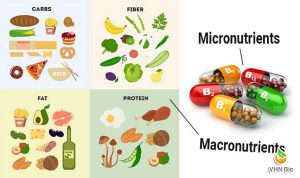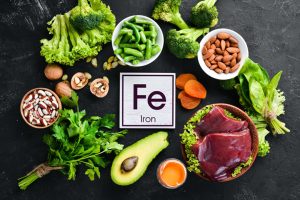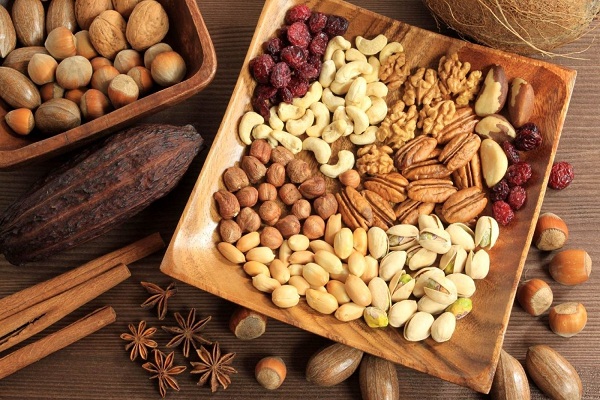Uncategorized
Top 5 Supplements for Skin Care and Acne Prevention
Top 5 Supplements for Skin Care and Acne Prevention
Healthy, glowing skin is a reflection of overall well-being, and while proper skincare routines are essential, incorporating supplements into your regimen can significantly enhance your skin’s health and help prevent acne. The right supplements can provide your skin with the nutrients it needs to heal, regenerate, and fight acne-causing bacteria.
In this article, we’ll explore the top 5 supplements for skin care and acne prevention, highlighting their benefits and how they can complement your skincare routine.

1. Vitamin A (Retinol)
Why It’s Important:
Vitamin A, often referred to as retinol when in topical form, is one of the most powerful nutrients for promoting clear skin and preventing acne. It works by supporting the skin’s natural exfoliation process and regulating the production of sebum, which is a key factor in acne development. Excess sebum can clog pores, leading to breakouts, and vitamin A helps prevent this.
Benefits for Skin:
- Promotes Skin Cell Turnover: Vitamin A aids in shedding dead skin cells, which can clog pores and contribute to acne.
- Regulates Sebum Production: By controlling oil production, it reduces the likelihood of clogged pores.
- Boosts Collagen Production: Vitamin A helps improve skin texture and elasticity, reducing scarring from acne.
How to Use:
Vitamin A can be taken as a supplement in the form of beta-carotene or retinyl palmitate. It’s best to take it in moderation, as excessive amounts of vitamin A can lead to toxicity. If you’re using topical retinol products, you can combine them with oral vitamin A supplements for enhanced results.
2. Zinc
Why It’s Important:
Zinc is an essential mineral with strong anti-inflammatory properties that can be particularly beneficial for acne prevention and healing. It helps to regulate oil production in the skin, and its antibacterial and anti-inflammatory properties can reduce the severity of acne outbreaks.
Benefits for Skin:
- Reduces Inflammation: Zinc helps calm inflamed skin, reducing the redness and swelling that come with acne.
- Fights Acne-Causing Bacteria: Zinc has antibacterial properties that help combat the bacteria responsible for acne breakouts, specifically Propionibacterium acnes.
- Supports Skin Healing: Zinc helps repair skin damage and reduce the appearance of scars from acne.
How to Use:
Zinc can be taken as a supplement, either in zinc sulfate, zinc gluconate, or zinc picolinate form. It’s best to take zinc with food to avoid stomach irritation, and recommended doses generally range from 15–30 mg per day. Always consult a healthcare provider to avoid over-supplementation, as excessive zinc can lead to a copper deficiency.
3. Omega-3 Fatty Acids (Fish Oil)
Why It’s Important:
Omega-3 fatty acids are essential fats that have a profound impact on overall skin health. These healthy fats are known for their anti-inflammatory properties, which are crucial for calming acne flare-ups and reducing redness. Omega-3s also help improve skin hydration and elasticity.
Benefits for Skin:
- Reduces Inflammation: Omega-3 fatty acids reduce the inflammatory response in the skin, leading to fewer and less severe acne outbreaks.
- Improves Skin Moisture: Omega-3s help lock in moisture, preventing dry skin, which can trigger excess oil production and acne.
- Enhances Skin Elasticity: Regular omega-3 supplementation promotes healthier, more youthful-looking skin.
How to Use:
Omega-3 fatty acids can be taken as fish oil or algae oil supplements. For acne and skin care, a daily dose of 1,000–2,000 mg of EPA (eicosapentaenoic acid) and DHA (docosahexaenoic acid) is effective. If you’re vegetarian or vegan, consider algae-based omega-3 supplements.
4. Vitamin E
Why It’s Important:
Vitamin E is a powerful antioxidant that protects the skin from free radical damage and helps reduce the oxidative stress that can lead to inflammation and acne. It also plays a key role in skin healing and scar reduction, making it especially beneficial for acne-prone skin.
Benefits for Skin:
- Protects Against Free Radicals: Vitamin E helps shield the skin from damage caused by environmental stressors, such as pollution and UV rays.
- Promotes Healing: Vitamin E aids in skin repair, reducing the appearance of scars and promoting faster healing after an acne breakout.
- Hydrates and Softens Skin: As a fat-soluble vitamin, it helps maintain moisture in the skin, preventing dryness and flakiness.
How to Use:
Vitamin E supplements can be taken orally, with recommended doses ranging from 15 mg to 30 mg per day. You can also apply topical vitamin E oil to acne scars to improve skin healing and reduce the visibility of blemishes.
5. Probiotics
Why It’s Important:
Probiotics are live bacteria and yeasts that provide a range of health benefits when consumed in adequate amounts. When it comes to acne, probiotics help balance the gut microbiome, which has a significant impact on skin health. A balanced gut microbiome can reduce inflammation and improve immune function, which may decrease acne severity.
Benefits for Skin:
- Reduces Inflammation: By promoting a healthy gut, probiotics reduce systemic inflammation, which is often linked to acne.
- Supports Hormonal Balance: Probiotics help regulate hormone levels, reducing hormonal fluctuations that can trigger acne, particularly in teenagers and women.
- Improves Skin Hydration and Appearance: A healthy gut microbiome has been linked to better skin hydration, reduced blemishes, and a clearer complexion.
How to Use:

Probiotics can be found in fermented foods like yogurt, kefir, and kimchi or in supplement form. For skin benefits, look for supplements containing strains like Lactobacillus or Bifidobacterium, and aim for a daily dose of at least 1–10 billion CFUs (colony-forming units).
Conclusion
When it comes to skin care and acne prevention, supplements can play a key role in supporting your skincare routine and addressing internal factors that affect your complexion. The top five supplements for acne prevention—Vitamin A, Zinc, Omega-3 Fatty Acids, Vitamin E, and Probiotics—offer a combination of anti-inflammatory, antibacterial, and skin-rejuvenating benefits. By incorporating these supplements into your diet and skincare regimen, you can improve your skin’s health, reduce acne flare-ups, and achieve a clearer, more radiant complexion.
As with any supplement, it’s important to consult with a healthcare professional before starting a new regimen, particularly if you have pre-existing skin conditions or are taking other medications. By selecting the right supplements and using them correctly, you can take your skincare to the next level and enjoy clearer, healthier skin.


